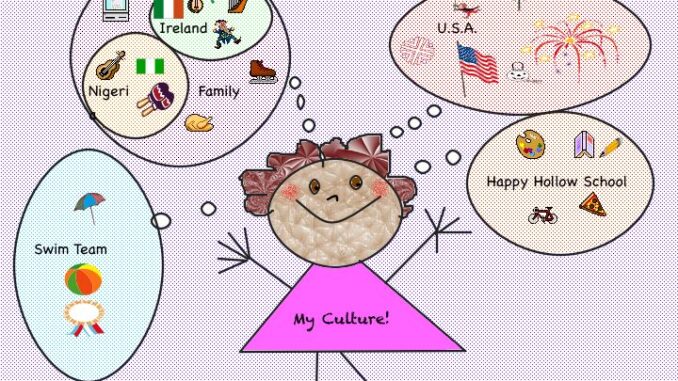
In the world of anthropology there is a primary focus on the many astounding anthropologists like Max Weber, Lewis Henry Morgan, Margaret Mead, and one whom many deem the father of anthropology, Franz Boas. Acting as a guide, their contributions have laid the foundation to numerous of ideologies, theories, and studies regarding the human culture. For example, one of Margaret Mead’s most infamous studies is through a technique called visual anthropology where Mead studies character formation in three different cultures, the Balinese, Iatumal, and American. Personally, I really like Margaret Mead’s methods and since learning about her I have studied a lot of her previous work. During my first semester in grad school I was eager to continue to learn about those who paved a way for me to study anthropology. However, as I sat through course after course learning about all of these anthropologists and their wonderful contributions, there were a couple of things that I did notice. One, there were no in-depth studies on Black Anthropologists, two in almost every class attended I was the only minority, and three as I began to participate in field work I realized that there were very few minorities who were a part of anthropology as a whole and I began to wonder why. Was it due to the scientific racism related to the earlier periods of anthropology? Is it because minorities feel uncomfortable or unaccepted in the field? Or is it simply because minorities are not being exposed to anthropology? Whatever the reason maybe it is a silent issue that seems to dwell in the world of anthropology.
Scientific Racism
Make no mistake that racism was front and center during the beginning stages of anthropology as it was developed during a time where racism was displayed like the next fashion statement. Unfortunately, those biased views went into the work of some of the most prominent figures of anthropology. The scientific racism that different minorities endured during the earlier years of anthropology can be very daunting to learn about without ones’ heart feeling a little heavy or sad. This heaviness is something that I have seen to be displayed from just about everyone who learns what took place during those times. For example, the first time a professor showed a film about the human zoo there was an awkward feeling that straddled the room and a heated discussion that took place afterwards. Expressions of shock, hurt, and disappointment was on the surface of the discussion. The human zoo was present during the 19th and early 20th century as humans of various ethnicities were collected from numerous parts of the world by socialists, scientists, and anthropologists to be put on display for entertainment purposes. Europeans around the world would pay to gaze at the humans as if they were animals and in some instances animals were grouped with humans as a comparison.
Is It Acceptance or Exposure?
Personally, I have never experienced a moment where anyone has made me feel like I did not belong in the field, but there were definitely times where I may have felt that my opinions were not as equally accepted or valued as my white peers. However, I think this is something that minorities face in just about every line of work from some people who indulge in an ignorant mindset. Whatever the case may be it is still uncomfortable and acceptance in the field of Anthropology was not always the case. On one hand, you had the majority of anthropologists who constantly studied blacks and other minorities to prove that they were inferior to their white successors and that their lives had no value amongst many other horrendous preconceptions. Due to those frivolous studies about minorities many blacks were not accepting of anthropology and opted to distance themselves from the practice. Instead a majority of African Americans took a liking to sociology and history when furthering their education. The numbers of black anthropologists were so small that there were only about 10 black anthropologists in the early 1900s. Now today the number of black anthropologists have succeeded well beyond 10 people but the numbers are still relatively low. As racial and cultural wars have helped to break some barriers for minorities, it still has not quite made its connection to anthropology. Again, I must ask the question why?
One theory that I have considered is that exposure to anthropology is not fully present in the African American culture. From my own experience, I know that I was exposed to the possibility of being a doctor, a lawyer, nurse, teacher, and the typical mainstream jobs that are subconsciously forced upon children through various media outlets. Anthropology was not one of those choices, in fact I was not truly introduced to anthropology until being required to take Cultural Anthropology as a mandatory course during my time as an undergraduate. Thankfully that course allowed me to explore a world of cultures and ultimately change my career path in general. Lack of exposure doesn’t just stem from the cultural aspects but it seems to generate from an educational standpoint as well. As an undergraduate I soon realized that there were not a lot of studies present on African American Anthropologists which led me to perform my own research about African American Anthropologists. During research, I learned how Franz Boas was not only the teacher to white anthropologists but also to a black anthropologist as well. I was fascinated to learn about African American Anthropologists, who also became favorites of mine, and played a significant role in anthropology like Zora Neal Hurston. Ms. Hurston was a student of Franz Boas and in his class the same exact time as fellow anthropologist Margaret Mead. Zora Neal Hurston was a well-known novelist, one who contributed to folklore, and an author. However, Zora Neal Hurston was also an anthropologist in her own rights who studied with the best. Margaret Mead is always mentioned as a notable student of Franz Boas, but unfortunately in most courses Hurston is not even acknowledged. Then, there was the fact that W.E.B. DuBois took a likening to Franz Boas, read papers side by side with Boas in London, and invited him to speak at the college he taught at in Atlanta, Georgia. Unfortunately, collaboration of the two is not something that you would typically learn about in the basic courses of Anthropology which is sad. The lack of exposure to the accomplishments of African American Anthropologists’ speaks volumes and it relays a message that studying blacks is great but acknowledging their contributions is impotent. Anthropology is a field that shines a light on a variety of issues around the world. Most importantly it looks at the cultural disparities and similarities that ultimately connect people from every walk of life. Obviously, exposure is not the main reason why minorities shy away from the field of anthropology but it does seem to have its proper stake in the matter. The truth is there is a need for more diversity in anthropology and hopefully, as anthropology continues to progress there will be a recognition of such ultimately providing ways for those who would not even think of becoming an anthropologist as people cannot divulge in something that they have never been exposed to.
Unless otherwise stated, PONIREVO and/or its licensors DO NOT own any intellectual property rights in the website and material on the website. Majority of the site’s content has been scraped and auto posted by a third party artificial intelligence program —– PONIREVO Creation Team.
Proudly WWW.PONIREVO.COM
by Lia Hamilton



